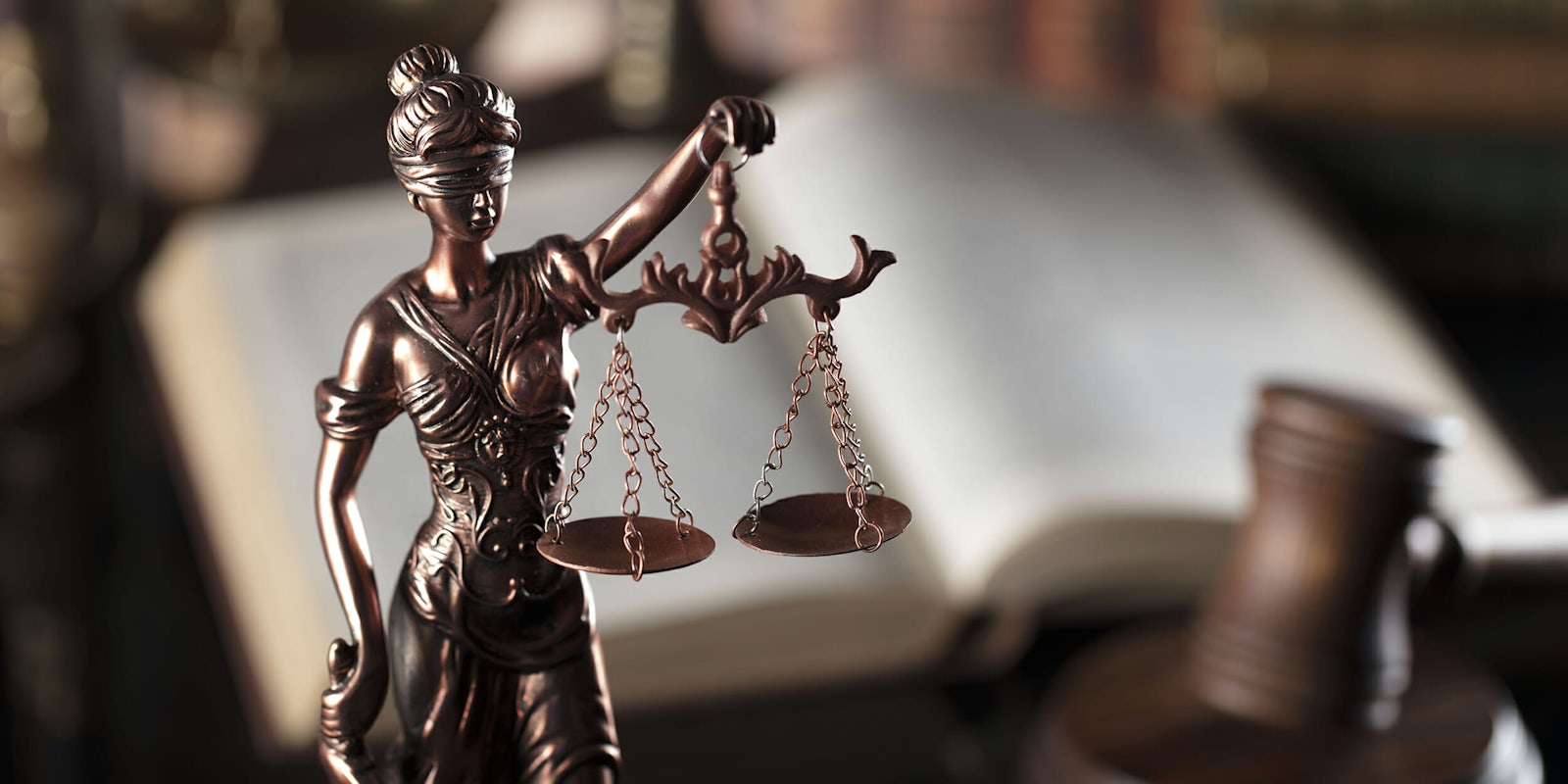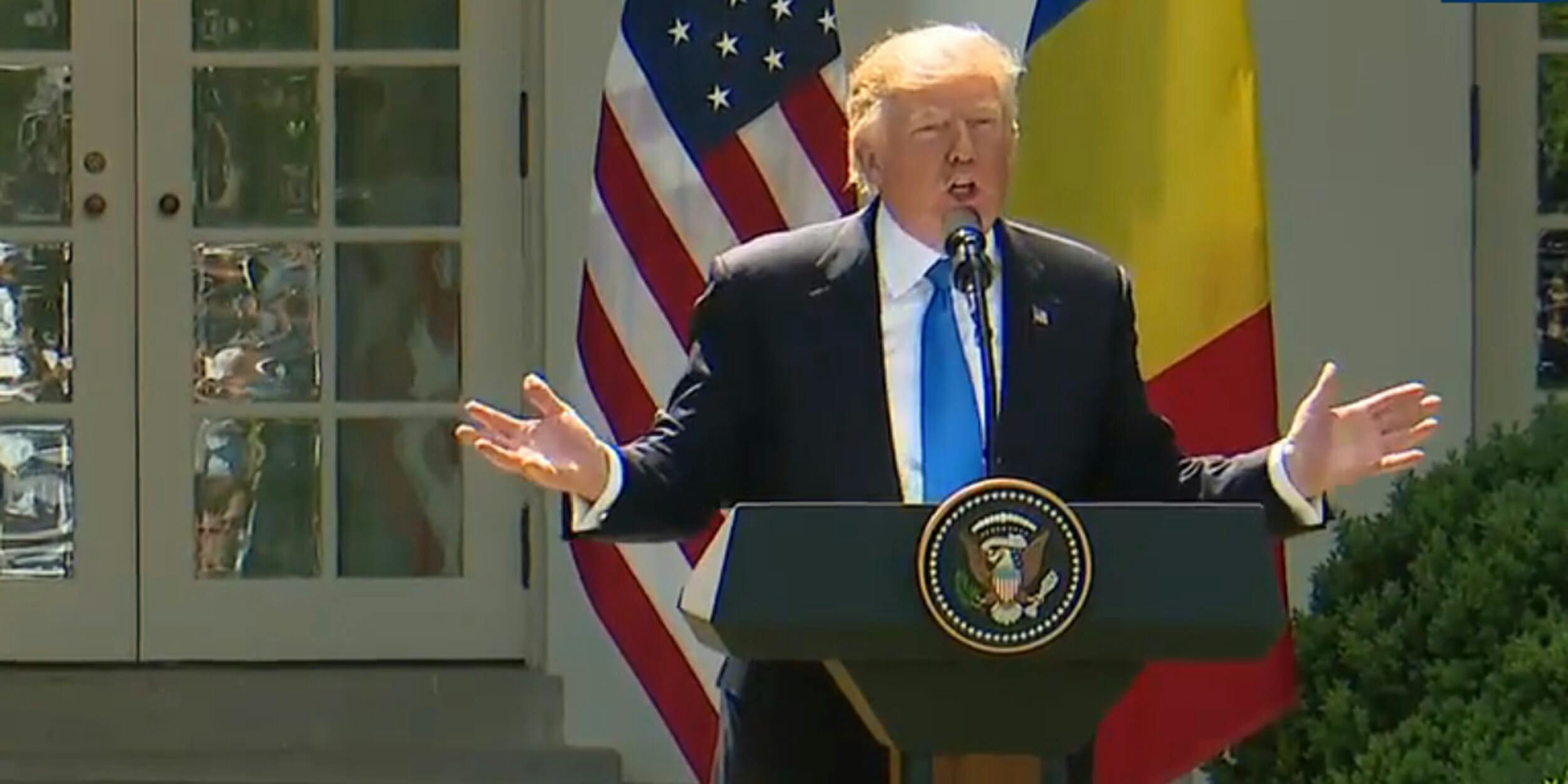As the fervor over former FBI Director James Comey’s testimony earlier this week continues to spread, the charge of obstruction of justice continues to weave through social media users, news accounts, and the mouths of politicians—and for good reason.
Critics of President Donald Trump have raised the possibility that he obstructed justice during his conversations with Comey and by firing him amid the FBI’s ongoing probe into Russia’s election interference, which potentially includes Trump associates. According to Comey, federal investigators are now likely looking into whether Trump tried to impede the Russia investigation. If he did, that could lead to impeachment.
Since it’s becoming increasingly clear that Trump’s presidency and the future of America’s democracy hinge on obstruction of justice, it’s a good time to brush up on what this sweeping, sometimes vague crime really means.
What is obstruction of justice?
Essentially, being charged with obstruction of justice means you’ve interfered in official law enforcement investigations. However, the law is also quite expansive.
The law includes more than 20 chapters, including “obstruction of proceedings before departments, agencies, and committees”; “influencing or injuring officer or juror generally”; and “obstruction of criminal investigations.”
It’s been used before in the impeachment of several presidents (but more on that later).
Why are people saying Trump could be charged with obstruction of justice?
In the case of Trump, the “obstruction” would likely come from conversations he had with Comey.
Comey claimed on Thursday that when Trump said he “hoped” Comey could end the FBI’s investigation into former National Security Adviser Michael Flynn, Comey testified that he felt as though Trump was directing him to do so.
Comey: “I don’t think it’s for me to say” whether conversation he had with Pres. Trump regarding Flynn Feb. 14 “was an effort to obstruct” pic.twitter.com/XcFprUiXis
— ABC News (@ABC) June 8, 2017
Sen. Jim Risch (R-Idaho) tried to pin Comey down on the word “hope” during Thursday’s hearing. Risch said “I hope” is not a direction. However, Comey said given Trump’s standing as president and the fact that he and Trump were alone in a room together talking about an ongoing investigation, it felt like an order.
“I took it as this is what he wants me to do,” Comey said. “I didn’t obey that, but that’s the way I took it.”
So, is Trump guilty of obstruction of justice?
That remains to be seen.
Comey was careful not to make any definitive statements during his testimony regarding Trump and the law. However, he made it clear he was uncomfortable with his interactions with the president.
The true answer of whether Trump committed a crime will likely fall to Special Counsel Robert Mueller, something Comey pointed out during his testimony.
“I’m sure the special counsel will work toward: to try and understand what the intention was there and whether that’s an offense,” he said.
The key to determining whether Trump is guilty will come down to “corrupt intent,” according to some legal experts.
“You have to show that there was a corrupt intent,” Peter Zeidenber, a former federal prosecutor, told Newsweek. “If someone were defending Trump, they might say he’s naïve and there wasn’t bad intent. He simply didn’t understand the rules of the road.”
Zeidenber also told Newsweek that Trump allegedly asking top officials—including Attorney General Jeff Sessions, Comey’s former boss—to leave the room before speaking with Comey in February, when he allegedly made the comments about ending the Flynn investigation, could also be important.
READ MORE:
- Trump impeachment: Here are the odds Trump leaves office early
- What did Donald Trump tweet now?
- Understanding the 25th Amendment, the unlikely path to removing Trump from office
“The fact that he clears the room before he has his discussion with Comey—that to me is highly significant,” Zeidenberg said. “When you say to the vice president, ‘Get out,’ to the attorney general, ‘Get out,’ and ‘I want to have a one-on-one here’—that suggests consciousness of guilt.”
Comey actually touched on this during the hearing—he also thought Trump asking everyone to leave the room was a “very significant fact.”
“Why did he kick everybody out of the Oval Office? Why would you kick the attorney general, the chief of staff out to talk to me if it was about something else?” Comey said. “So, that to me, as an investigator, is a very significant fact.”
What if Mueller decides Trump obstructed justice?
It’s not likely the Justice Department will charge a sitting president. However, several members of Congress have already begun talking about impeachment.
Former Presidents Bill Clinton and Richard Nixon were both accused of obstruction of justice during their respective impeachment proceedings in 1998 and 1974.
Rep. Al Davis (D-Tx.) gave a passionate speech on the House floor last month and has said he is already drafting articles of impeachment.
https://twitter.com/ChrisMurphyCT/status/864597377163898880
Impeachment is essentially a political decision—and since both the House and Senate are controlled by Republicans, it’s not likely they will decide to impeach Trump, even if Mueller hypothetically says Trump obstructed justice.
However, the decision not to impeach him—especially in light of a potentially Mueller decision—could be costly politically.



